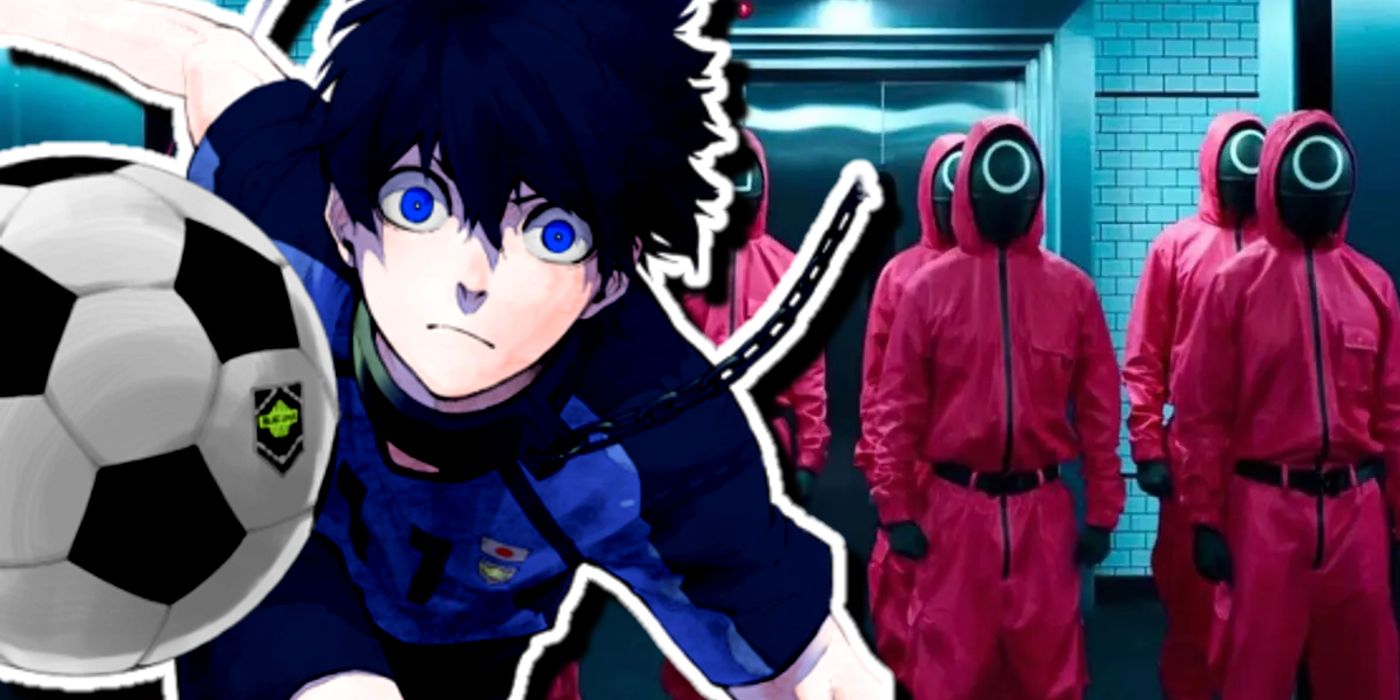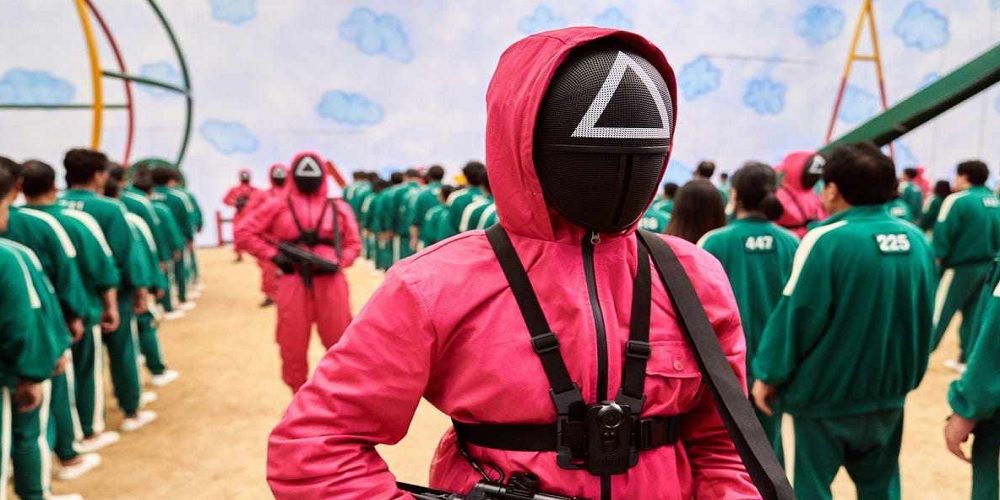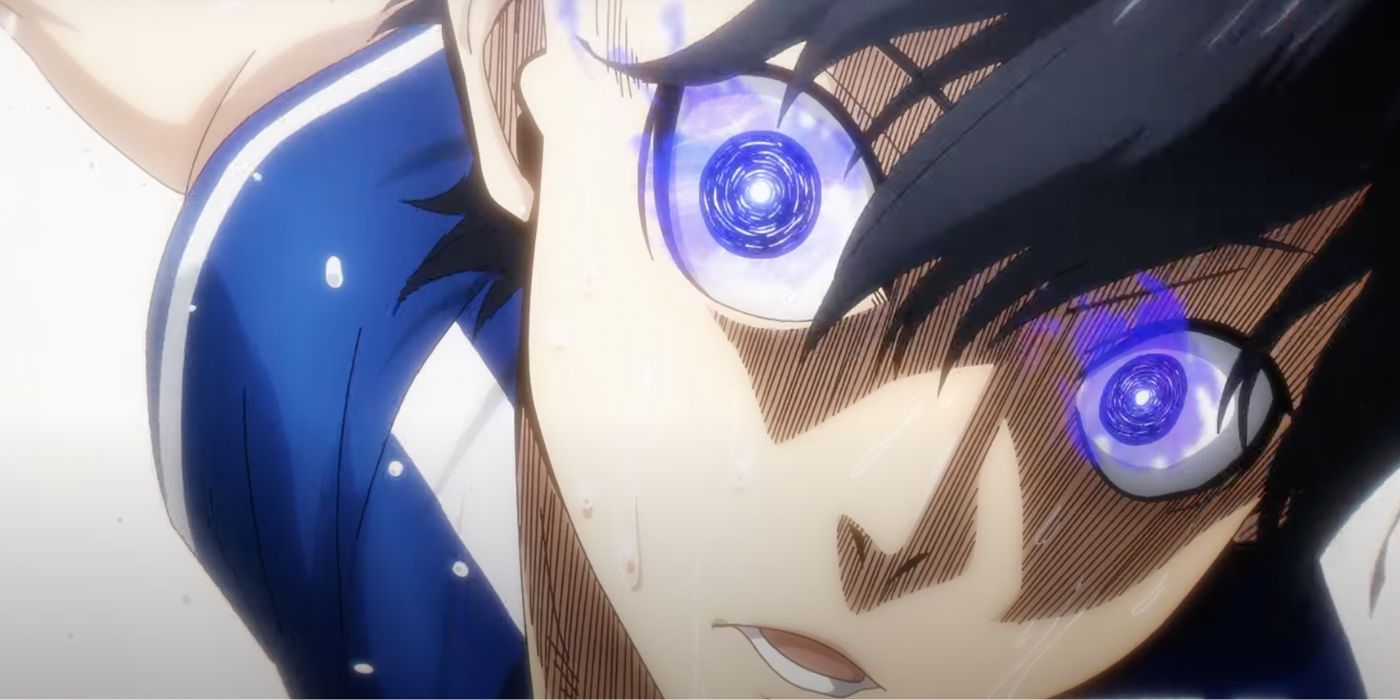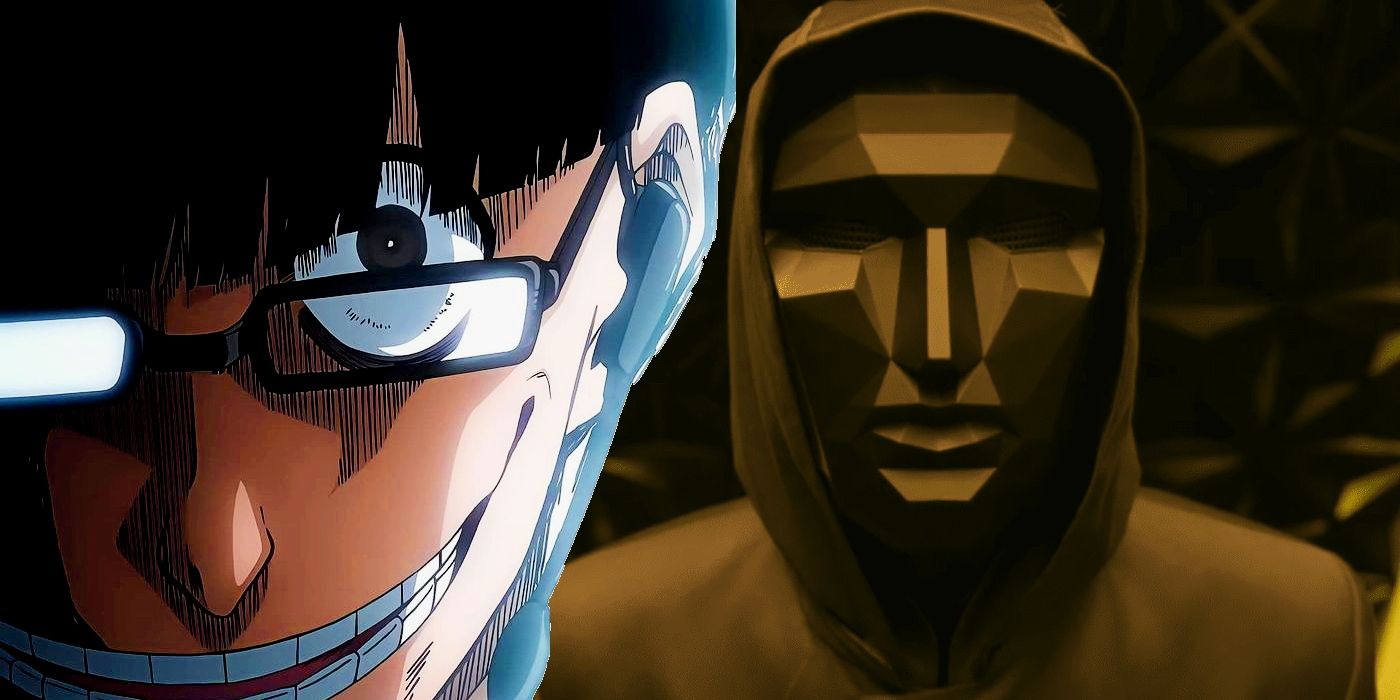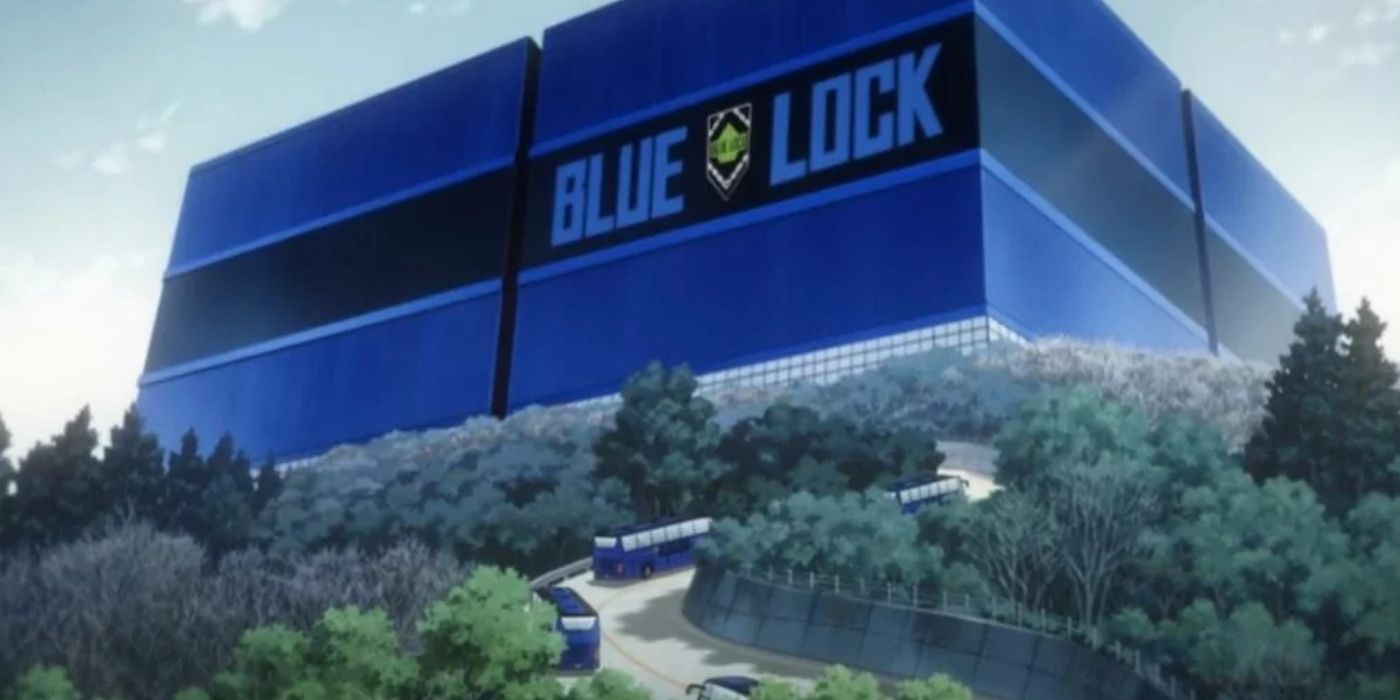The following contains spoilers for Blue Lock, now streaming on Crunchyroll and Netflix, and Squid Game, also streaming on Netflix.
When it comes to sports anime, especially shonen titles, the image of fiery young individuals easily comes to mind. The genre is often associated with teamwork, camaraderie and, of course, competitiveness. The least one would expect from it is a death match. Blue Lock, however, shatters all these expectations. Instead of putting it beside other soccer anime like Aoashi or Days, it is more appropriate to compare Blue Lock to titles like the hit Netflix series Squid Game.
Squid Game received global renown upon its release, along with numerous well-earned awards from different award-giving bodies. The thriller/drama series does a perfect job of riling up viewers by putting its cast into desperate situations with high chances of failure. With failure equating to death, viewers of the series can't help gnashing their teeth in anticipation of what comes next. Although losing in Blue Lock does not necessarily equate to death, it still shares many similarities with the sadistic, twisted Squid Game.
Squid Game Is All About High Risks and High Returns
Squid Game received a warm reception from viewers across the globe, but it is not the first to execute the idea of a deadly survival competition. The series is inspired by survival manga series like Battle Royale, Liar Game and Gambling Apocalypse: Kaiji. Even so, that doesn't take away from the Netflix series' spectacular execution. Squid Game's massive success makes it impossible even for Netflix to ignore, so much so that the streaming platform notorious for canceling series has officially announced the production of a second season.
Squid Game's plot is simple. A mysterious organization hunts for financially vulnerable individuals and gives them a chance to overturn their life of debt. They are first tempted by a simple game of ddakji -- a Korean game where folded papers are slapped on top of each other with the goal of turning the opponent's ddakji. The initial bet is simple: should the host win, they get to slap the player. Should the player win, they earn a lump sum. Once they get the taste of a quick buck, the players are given a mysterious calling card and an offer to join a competition with a gargantuan sum of money at stake.
The catch, however, is that the unassuming children's games have a deadly twist. Everyone who loses is immediately murdered, effectively wracking the remaining competitors' nerves and increasing the games' stakes. The other catch is that each time a player dies, the prize pool increases a set amount, passive-aggressively encouraging players to turn against each other. While the administration makes it seem otherwise, it seems that only one player is meant to win the entire competition.
Blue Lock Is a Battle Royale Story Hiding in a Sports Anime Skin
Blue Lock is one of the few sports anime airing in Fall 2022. At first glance, the series seems like a typical soccer anime focusing on camaraderie and teamwork. However, the first episode immediately makes it clear that this story will be nothing like what sports anime fans are used to seeing. The anime throws anything related to sportsmanship out of the window, instead aiming to highlight egotism and bring out its utmost potential.
Set in a time when the Japanese national team suffered a debilitating World Cup defeat, the Japan Football Union aims to rehabilitate the country's soccer scene. As such, the Union has invited 300 strikers to join the titular program, but no details other than the time and location are given. The athletes only learn what they are getting themselves into after arriving at the designated location, where they are greeted by a shady-looking man.
That person introduces himself as Ego Jinpachi, the organizer and overseer of the Blue Lock program. Jinpachi's ultimate goal, according to him, is getting Japan to World Cup glory. To do that, he has one objective: to produce a revolutionary striker who only cares about himself. To achieve that, Jinpachi is willing to pit 300 young strikers in a survival-esque training camp he devised himself. He wants them to compete and develop their egos, enough to compete against the world's best.
Blue Lock Parallels Squid Game in More Ways Than One
The first similarity between Blue Lock and Squid Game is the way they shatter their unassuming appearances. Squid Game seems to be nothing more than a children's game, while Blue Lock seems like the typical soccer anime. However, everything changes once their respective narrative starts.
Squid Game preys on those who are financially struggling and makes them an indeclinable offer. By betting their lives, they can potentially earn billions in one go and overturn their miserable lives. Similarly, Blue Lock offers young and astounding strikers to bet their careers in the hopes of standing on top of the world. Interestingly, neither of the series forces their participants into the deal.
The agreeing participants are taken into an isolated location, where they will live throughout the duration of their stay. They are even provided uniforms, but their stay is not a vacation and they are soon made to participate in an elimination game. Squid Game has the Red Light, Green Light, while Blue Lock has the game of soccer-tag. The first game in both series serves as an eye-opener for the players, as well as an effective method to weed out unnecessary participants.
The desperate situations the participants are placed in bring out the worst in them. The fact that each death in Squid Game increases the prize pool makes the participants quickly turn against each other. They murder those who don't belong to their faction as well as anyone who gets in their way. Similarly, the players in Blue Lock are quick to resort to dirty tactics to ensure their own survival.
Sports anime are not associated with gruesome and sadistic series like Squid Game. Blue Lock, however, changes the formula by sharing Squid Game's love for high stakes and high rewards. The anime also brings out the worst in people by putting them in desperate situations, while also subtly encouraging them to do so. The only major difference is that Blue Lock aims to make its athletes more egotistic to better themselves, while Squid Game brings out the bad in people for the sake of entertainment.

